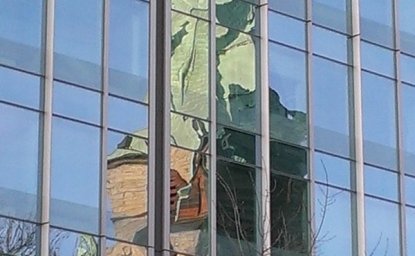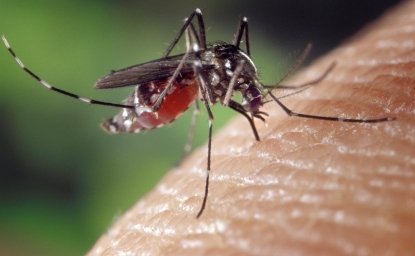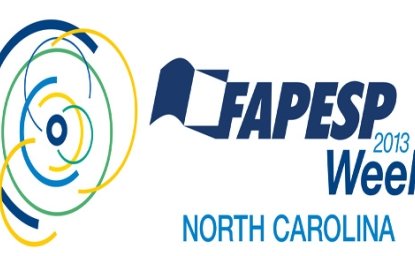- View the NanoMetro mashup
- View the map data gathering methodology
- View the raw data
- Request an update or revision
- View the related: Nanotechnology Consumer Products Inventory
 WASHINGTON — With nanotechnology poised to be the globe's next big economic driver, five U.S. cities have emerged as the country's top "Nano Metro" locations—areas with the nation's highest concentration of nanotech companies, universities, research laboratories, and organizations.
WASHINGTON — With nanotechnology poised to be the globe's next big economic driver, five U.S. cities have emerged as the country's top "Nano Metro" locations—areas with the nation's highest concentration of nanotech companies, universities, research laboratories, and organizations.
Three leading "Nano Metro" centers—San Jose, San Francisco and Oakland—are in California, the state emerging as the domestic frontrunner in nanotechnology competition. The other two—Boston and Middlesex-Essex—are in Massachusetts.
This information is on view as part of a new interactive map displaying the growing "Nano Metro" landscape. The map and accompanying analysis—presented by the Project on Emerging Nanotechnologies—depicts and ranks cities and states by numbers of companies, nanotechnology academic and government research centers, organizations, business sectors, and much more. The mashup is powered by Google Maps® and is available HERE
Nanotechnology Map Highlights:
*** The top 4 nanotechnology states are: California, Massachusetts, New York, and Texas (each with over 50 entries).
*** The top 5 "Nano Metro" areas are: San Jose, CA; Boston, MA; San Francisco, CA; Oakland, CA; and Middlesex-Essex, MA (each with over 20 entries).
*** Nanotechnology companies are working in 3 main sectors: materials, medicine and health, and tools and instruments (each with over 100 entries).
*** The number of universities and government laboratories working on some aspect of nanotechnology is significant, with 138 identified.
*** In all, 47 of 50 states and the District of Columbia contain at least one company, university, government laboratory, or organization working in nanotechnology, showing that nanotechnology activity is occurring throughout the United States.
In 2006, according to Lux Research, governments, corporations and venture capitalists worldwide spent $12.4 billion on nanotechnology research and development (R&D)—up almost 30 percent from 2005. By 2014, Lux estimates $2.6 trillion in manufactured goods will incorporate nanotechnology—or about 15 percent of total global output.
"Nanotechnology is usually seen as a worldwide or national enterprise, with the U.S. government alone investing $6.8 billion in nanotech R&D over the last decade. But what some describe as ‘The Next Industrial Revolution,' is actually taking place at a local and state level," said Project on Emerging Nanotechnologies Director David Rejeski. "The top 20 U.S. "Nano Metro" areas include cities as different as Raleigh, NC, Albuquerque, NM, and New York, NY."
"This map is drawn from publicly available information in key databases and it is not complete," according to Rejeski. "We know there is a lot more nanotech commercial and research activity than is reflected here. But this is a first attempt to show that nanotechnology is not a Silicon Valley or Boston Route 128 phenomena. Nanotechnology increasingly is on Main Street everywhere. As the Project receives new data, we plan to update the map to provide the best possible depiction of this country's emerging nanotechnology landscape."
About Nanotechnology
Nanotechnology is the ability to measure, see, manipulate and manufacture things usually between 1 and 100 nanometers. A nanometer is one billionth of a meter; a human hair is roughly 100,000 nanometers wide.
The Project on Emerging Nanotechnologies is an initiative launched by the Woodrow Wilson International Center for Scholars and The Pew Charitable Trusts in 2005. It is dedicated to helping business, government and the public anticipate and manage possible health and environmental implications of nanotechnology. For more information about the project, log on to www.nanotechproject.org.
The Pew Charitable Trusts is a national charitable organization serving the public interest by informing the public, advancing policy solutions and supporting civic life. Based in Philadelphia, with an office in Washington, D.C., the Trusts will invest $248 million in fiscal year 2007 to provide organizations with fact-based research and practical solutions for challenging issues.
The Woodrow Wilson International Center for Scholars is the living, national memorial to President Wilson established by Congress in 1968 and headquartered in Washington, D.C. The Center establishes and maintains a neutral forum for free, open, and informed dialogue. It is a nonpartisan institution, supported by public and private funds and engaged in the study of national and international affairs.




